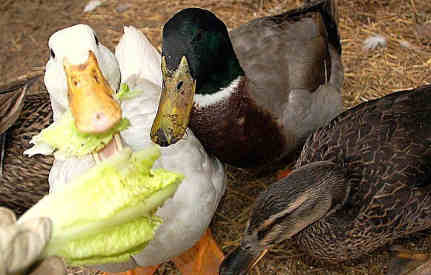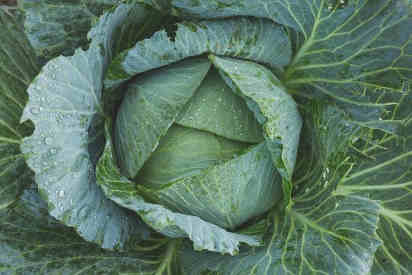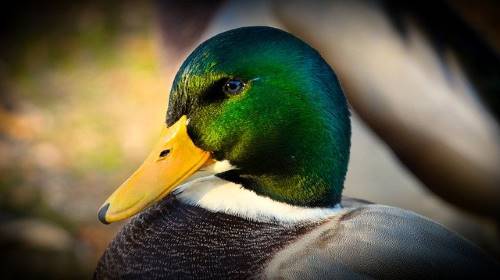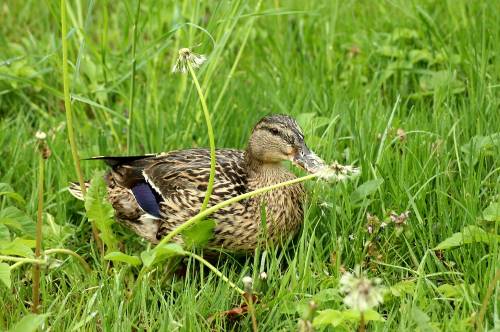Can ducks eat cabbage? The answer is yes! Ducks can eat cabbage. Cabbage is a great food choice for ducks.
Cabbage is packed with essential nutrients for ducks, such as vitamin C and fiber. Additionally, cabbage is low in calories and fat, making it a healthy option for ducks.
There are a few things to remember when feeding cabbage to ducks. This article will discuss everything you need to know about feeding cabbage to ducks, including how to prepare it properly and the best way to serve it.

Can ducks eat cabbage?
Ducks are omnivores, meaning they can eat plants and animals. This gives them a lot of variety in their diet and provides them with the nutrients they need to stay healthy.
Cabbage is a great source of vitamins and minerals for ducks. Vitamin C, for example, is an important vitamin for ducks as it helps them to stay healthy and fight off infection. Other important vitamins and minerals in cabbage include vitamin K, potassium, and calcium.
[DuckAffiliate]
The benefits of eating cabbage for ducks
Cabbage is a hardy and leafy vegetable often overlooked as duck food. However, cabbage is an excellent source of vitamins and minerals and can have many health benefits for ducks. Here we will discuss why you should consider feeding your ducks cabbage.
Excellent source of vitamins and minerals
Ducks need a variety of vitamins and minerals in their diet to stay healthy, and cabbage is a great way to provide those essential nutrients. Cabbage is especially high in vitamin C, which is important for a duck’s immune system.
In addition, cabbage also contains vitamin K, which is important for blood clotting, and vitamin A, which is important for vision and cell growth.
Helps improve digestion
Cabbage is rich in fiber, which can help ducks with indigestion or other digestive issues. Fiber helps add bulk to the diet and can also help ducks feel fuller for longer. This is especially beneficial if you are trying to help your ducks maintain a healthy weight.
Cabbage is also a prebiotic, which feeds the good bacteria in a duck’s gut. These good bacteria are important for overall gut health and can help ducks digest their food more efficiently.
Helps reduce stress levels
Cabbage contains a compound called glucosinolate, which has been shown to have anti-stress properties. This means that cabbage can help ducks who are feeling stressed or anxious to relax and feel calmer.
Cabbage is also a good source of magnesium, which has been shown to help reduce stress levels. Magnesium helps the body produce serotonin, a hormone known to have a calming effect.
Helps improve joint health
Cabbage contains compounds that can help reduce inflammation in the body, including in the joints. This means that cabbage can benefit ducks who suffer from arthritis or other joint problems.
Cabbage is also a good source of chondroitin and glucosamine, both compounds known to help improve joint health.
A low-calorie food
If you are trying to help your duck lose weight or maintain a healthy weight, cabbage is an excellent food to include in its diet because it is low in calories but still packed with nutrients. One hundred grams of cabbage contains only 25 calories, making it a great way to add bulk to a duck’s diet without adding too many extra calories.
Things to watch out for when feeding cabbage to ducks

Cabbage is a nutrient-rich vegetable that can be a great addition to your duck’s diet. However, there are a few things you need to keep in mind when feeding cabbage to your duck. Let’s look at a few things you should watch out for when feeding cabbage to ducks.
Avoid pesticides and herbicides
Cabbage is often treated with pesticides and herbicides before it reaches store shelves. These chemicals can harm ducks, so choosing only organically grown cabbage is important. If you’re unsure whether or not the cabbage you’re buying is organic, look for the USDA Organic label.
Remove the outer leaves
The outer leaves of cabbage can be tough and difficult for ducks to digest. To ensure your duck can digest the cabbage properly, remove the outer leaves before feeding it to them.
Don’t overfeed cabbage
While cabbage is a healthy food for ducks, you should only feed it in moderation. Cabbage is high in fiber, and too much fiber can cause problems with digestion. When feeding cabbage to your duck, start with a small amount and gradually increase the amount you feed as you see how your duck responds.
Chop into small pieces
Cabbage can be difficult for ducks to eat if it’s not chopped into small pieces. To ensure your duck can eat the cabbage easily, chop it into small pieces before giving it to them.
How often should ducks eat cabbage?
As a general rule of thumb, ducks should eat about ¼ pound of food per day. This can be divided into two or three meals, and cabbage can make up a part of each meal.
Ultimately, the best way to determine how often to feed your duck cabbage is to monitor their health and activity level. If they seem happy and healthy, you are probably feeding them the right amount.
How to prepare cabbage for feeding to ducks

It can be difficult to prepare cabbage so that ducks can eat it. This section will provide tips on preparing cabbage for feeding ducks.
The first step is to remove the outer leaves of the cabbage. These leaves are not edible for ducks and can be discarded. Next, cut the cabbage into small pieces. The smaller the pieces, the easier it will be for ducks to eat them.
Finally, wash the cabbage pieces thoroughly. This will remove any dirt or bacteria that may be present on the surface of the cabbage.
Once the cabbage is prepared, you can feed it to ducks as a treat. You can feed cabbage to ducks fresh or frozen. If feeding frozen cabbage to ducks, thaw it completely before giving it to them.
You can mix cabbage with other fruits and vegetables to make a healthy treat for your ducks. Some good foods to mix with cabbage include carrots, apples, spinach, and beet greens.
Can baby ducklings eat cabbage?
Baby ducklings are omnivores, which means they can eat plants and animals. While they are still growing, they need a diet high in protein. This can be obtained from foods such as insects, small fish, and earthworms.
However, ducks also need to consume vegetation to obtain the necessary nutrients. Various leafy greens, such as cabbage, lettuce, and spinach, can provide these nutrients.
In addition, baby ducklings can also eat grubs, snails, and other invertebrates. As long as their diet is balanced, baby ducks will be able to thrive on a variety of different foods.
What other vegetables can ducks eat?

Cabbage is a great vegetable for ducks, but it’s not the only one. There are a variety of other vegetables that ducks enjoy just as much, if not more. Here are some other great options to add to your duck’s diet.
Carrots
Carrots are not only a good source of vitamins and minerals, but they also provide ducks with essential fiber. Ducks love carrots, and they’re especially good for young ducklings who need all the nutrients they can get.
Read More: Can Ducks Eat Carrots? 5 Fantastic Benefits
Spinach
Spinach is another excellent source of vitamins and minerals for ducks. It’s also high in iron, which is important for ducklings’ growth. Spinach is a little tougher for ducks to eat than some other greens, so chop it up into smaller pieces before feeding it to them.
Peas
Peas are a favorite of many ducks. They’re packed with vitamins, minerals, and fiber, and they’re a great protein source. Ducks love to eat fresh peas right off the vine, but you can also give them frozen or canned peas. Just make sure to avoid any that have been sweetened or flavored.
Beets
Beets are root vegetables high in vitamins, minerals, and fiber. Ducks enjoy eating both the greens and the roots of beets. However, the greens are a little tougher to eat, so chop them into smaller pieces.
How to give ducks a healthy and balanced diet
Ducks are wonderful, friendly creatures that can bring so much joy to your life. They are relatively low-maintenance as pets, but they still need proper care and a healthy diet to thrive. Here’s everything you need to know about what ducks need to eat to stay healthy and happy.
Duck diet
Ducks are omnivores, which means that they eat both plants and animals. A duck’s diet should consist of about 15-20% protein and 5-10% fat, and the rest should be made up of carbohydrates like grains, vegetables, and fruits.
While ducks can find some of the nutrients they need in the wild, it’s important to supplement their diet with pellets or duck food specifically designed to meet their nutritional needs.
What do ducks eat?
A healthy diet for a duck includes:
- Protein: This can come from insects, worms, small fish, or meat scraps. Ducks also need a source of calcium to keep their bones strong.
- Carbohydrates: Grains like wheat or corn, as well as vegetables and fruits.
- Fat: A small amount of fat is necessary for a duck’s diet because it provides them with energy. Fat can come from things like cooked bacon or chicken scraps.
- Water: Ducks must have access to fresh water at all times to stay hydrated.
- Vitamins and minerals: Ducks also need vitamins and minerals like iron, zinc, selenium, and vitamins A, D3, and E. These can be found in dark green leafy vegetables or pellets designed specifically for ducks.
Ducklings vs adults
The nutritional needs of ducks change as they grow from ducklings into adults. Ducklings need more protein to help them grow, while adults need more carbohydrates for energy. It’s important to adjust your duck’s diet as they age to get the right mix of nutrients.
Can ducks eat cabbage – final thoughts
Cabbage is a nutritious vegetable that provides many health benefits for ducks. Ducks can safely eat cabbage as part of a well-rounded diet.
A healthy diet is essential for ducks to thrive. As omnivores, they need a mix of protein, carbohydrates, and fat in their diet. Ducklings have different dietary needs than adults, so it’s important to adjust their food accordingly as they age. Vitamin and mineral supplementation is also necessary to ensure your duck gets everything they need to stay healthy and happy.
